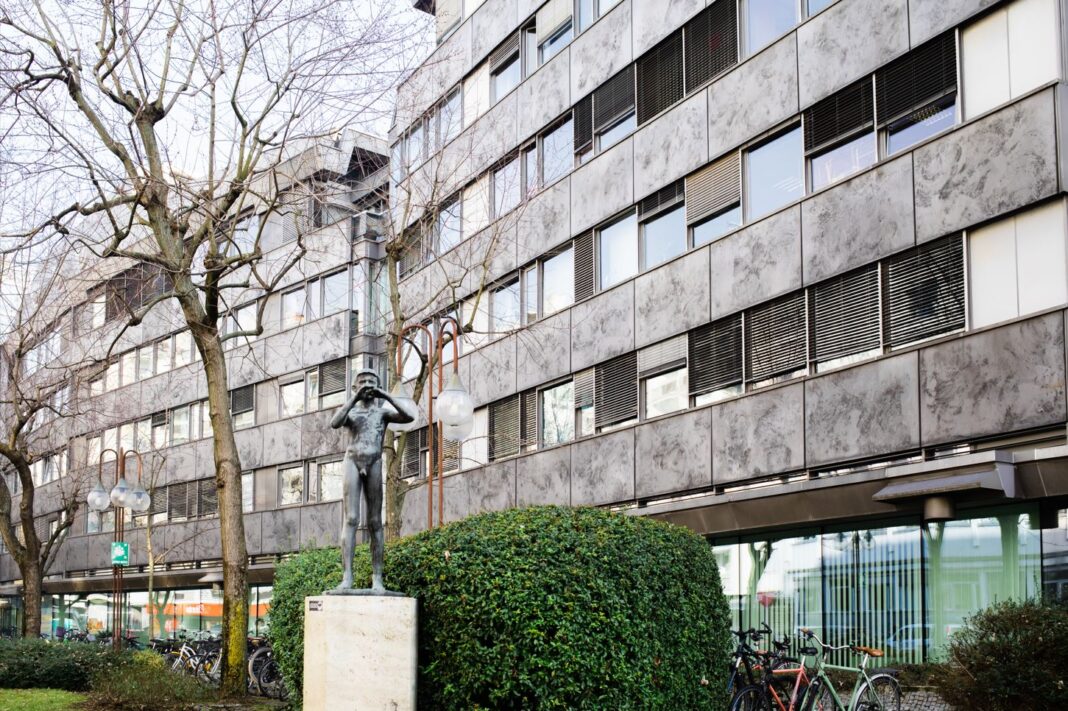By: Peter Truden
After a long period of speculation as to how the Constitutional Court will decide on the constitutional review of the new law on RTV, the uncertainty is now over, at least for a while: the Constitutional Court of the Republic of Slovenia has suspended the implementation of the law until it judges whether the law is in accordance with the constitution.
Let us remind you: the government side and those at RTV, who – according to the diction of Marcel Štefančič – are “fucking more”, in a panic wanted to achieve a different outcome of events already last week. But it did not help.
Three female constitutional judges were otherwise in favour of the law, but, as Bojan Požar reported, they were outvoted, they wanted to hear the witnesses proposed by the supporters of the law:
As STA reports, the Constitutional Court has temporarily suspended the implementation of part of Articles 23, 24 and 25 of the amendment to the Act on RTVS, which deal with the constitution of a new board of the institution, the creation of a new statute and the appointment of the president and members of the board. The procedures for the constitution of new bodies can continue, but the final constitution of the council is on hold, the institute is headed by the acting director.
The Constitutional Court temporarily suspended only the implementation of those transitional provisions of the amendment, which govern the final constitution of the Council of Radio-Television Slovenia (RTVS) and consequently other new bodies of the institute. With this, the Constitutional Court ensured that, until the final decision, the management, operation and control of RTVS are regulated to the extent and under the conditions set out in Articles 22 and 26 of the amendment, i.e., that until the appointment of the administration as an acting director, the institution is led by the Director General, as well as the directors of radio and television perform acting functions, whereby all three can only perform ongoing business.
At the same time, following the decision of the Constitutional Court, the procedures for appointing (new) members of the board of the institution can proceed, with the Constitutional Court at the same time delaying the final implementation of the new regulation.
As explained in the decision, the Constitutional Court weighed between the possibility of difficult-to-repair harmful consequences in the case of the implementation of the transitional and new regulation of the management and control bodies of RTVS, if it were to judge in the process that this is not in accordance with the constitution, and the possibility of hard-to-correct adverse consequences, if the implementation of the new and transitional regulation were temporarily delayed, but then it was found that the law is consistent with the constitution. It concluded that, in both cases, there could be harmful consequences that are difficult to correct, which in both cases relate to the positions of specific individuals as well as to the institutional level.
At the same time, they also explained that the amendment cannot be retained in its entirety, as the temporary suspension of the implementation of the amendment in its entirety, i.e., also the transitional arrangements, would result in the temporary suspension of all procedures for the constitution of new RTVS bodies, as well as the suspension of management, administration, and control of RTVS with a transitional arrangement, which would create an unconstitutional legal void.
“In any case, the established situation calls for the fastest possible substantive decision by the Constitutional Court, which is why the Constitutional Court will immediately proceed with the substantive assessment,” they wrote, adding that the matter will be treated with absolute priority.
The Constitutional Court adopted the decision by five votes to three.
At the same time, we should remind that due to similar dilemmas already in the 1990s, the Constitutional Court intervened in the events at RTV, because in the mid-1990s, the then general director of RTVS, Žarko Petan, was dismissed due to unconstitutional provisions.

